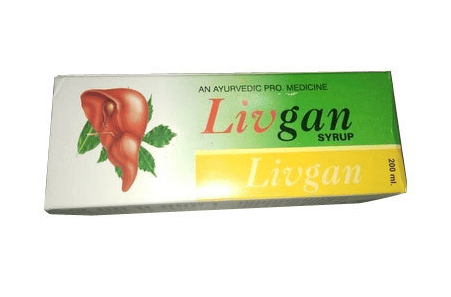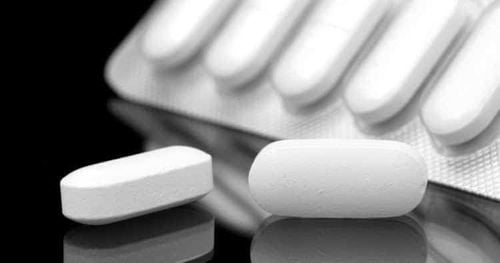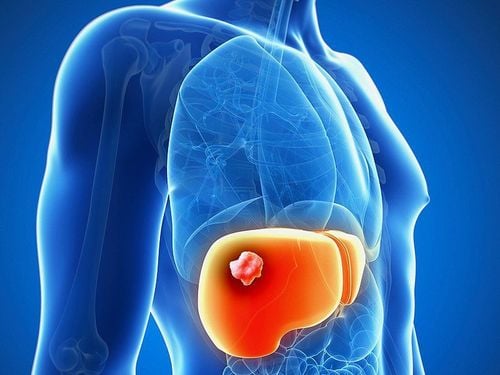This is an automatically translated article.
The article was professionally consulted by Specialist Doctor I Vo Thi Thuy Trang - Department of Medical Examination & Internal Medicine - Vinmec Da Nang International General Hospital.Acute liver failure is a state of severe acute liver injury with manifestations of hepatic encephalopathy and elevated hepatic INR in the absence of prior cirrhosis or liver disease.
Acute liver failure has many different names such as paroxysmal liver failure, acute liver necrosis, paroxysmal hepatic necrosis, fulminant hepatitis. If not treated promptly, the prognosis is often very poor. Patients with acute liver failure should be treated in an intensive care unit with a liver transplant. Acute liver failure causes many serious complications such as metabolic disorders, hepatic encephalopathy, cerebral edema, convulsions and renal failure, pulmonary complications.
Acute liver failure has many different names such as paroxysmal liver failure, acute liver necrosis, paroxysmal hepatic necrosis, fulminant hepatitis. If not treated promptly, the prognosis is often very poor. Patients with acute liver failure should be treated in an intensive care unit with a liver transplant. Acute liver failure causes many serious complications such as metabolic disorders, hepatic encephalopathy, cerebral edema, convulsions and renal failure, pulmonary complications.
1. Symptoms of acute liver failure
Signs and symptoms of acute liver failure are nonspecific and include:Fatigue, Anorexia Itching, Jaundice of the eyes and skin, Abdominal pain in the liver (1/4 right upper abdomen) Nausea, Vomiting Difficulty sleeping, lethargy , lethargy Confusion and coma If you or a loved one suddenly notices a yellow coloration of the skin or eyes; pain in the upper abdomen, or any changes in mental status, changes in personality or behavior, see a doctor immediately.

Da hoặc mắt chuyển sang màu vàng có thể là dấu hiệu suy gan cấp
2. Causes of liver failure
Possible causes of acute liver failure include:2.1 Paracetamol overdose Taking too much Paracetamol is the most common cause of acute liver failure in the United States. Acute liver failure can be caused by taking too high a dose of Paracetamol at the same time, or by taking a prolonged overdose. If you or a loved one accidentally overdoses on paracetamol, go to the hospital right away, don't wait for symptoms to appear.
In addition, some prescription drugs, including antibiotics, non-steroidal anti-inflammatory drugs, and anticonvulsants, can cause acute liver failure.
2.2 Herbal Supplements Some herbal medicines and tonics such as kava, ephedra, fenugreek, and pungent mint are believed to have the potential to cause acute liver failure.
2.3 Hepatitis and other viruses Hepatitis A, B, and C can cause acute liver failure. Other viruses that pose a similar risk are Epstein-Barr virus, cytomegalo, and herpes simplex.
2.4 Toxins Toxins that can cause acute liver failure include the wild poisonous mushroom Amanita phalloides, which is sometimes confused with an edible mushroom. Carbon tetrachloride is another poison that can cause acute liver failure. It is an industrial chemical found in refrigerants and solvents for waxes, varnishes, and other materials.
2.5 Autoimmune disease Liver failure can be caused by autoimmune hepatitis – a condition in which the body's immune system turns to attack liver cells, causing inflammation and liver damage.
2.6 Hepatic Venous Disease Vascular disease, such as Budd-Chiari syndrome, causes hepatic vein obstruction and consequent acute liver failure.
2.7 Metabolic diseases Some rare metabolic diseases, such as Wilson's disease and acute fatty liver of pregnancy, sometimes cause acute liver failure.
2.8 Cancer Cancer that is primary or metastasized to the liver can cause liver failure.
2.9 Sepsis Sepsis and shock can severely reduce blood flow to the liver, causing liver failure.
In addition, there are many cases of acute liver failure of unknown cause.
3. Complications of acute liver failure
Complications of acute liver failure include:3.1 Cerebral edema Fluid accumulation causes increased intracranial pressure.
3.2 Bleeding and Hemorrhagic Complications The dysfunctional liver cannot produce enough clotting factors. The most common complication is gastrointestinal bleeding. This complication is difficult to control.
3.3 Infection Patients with acute liver failure are more susceptible to infections, usually blood, respiratory, and urinary tract infections.
3.4 Renal failure Renal failure develops in approximately 55% of all patients referred to specialist centers for acute liver failure. Renal failure can be secondary to liver failure (and is known as hepatorenal syndrome) or renal failure can be a secondary consequence of something that affects both the liver and kidneys directly (eg, paracetamol overdose). .
3.5 Metabolic Disorders Hypoglycemia (due to impaired hepatic glycogen stores and hypercholesterolemia), hypokalemia, hypophosphatemia, and metabolic alkalosis are commonly present, independent of renal function.

Suy gan cấp khiến dự trữ glycogen bị suy giảm gây hạ đường huyết
4. Methods to protect the liver
4.1 Always take your medicine as directed When you take paracetamol or other medicines, check the recommended dose on the package carefully, and do not take too much. If you already have liver disease, consult your doctor before taking paracetamol.4.2 Tell your doctor about any medications you are taking Even over-the-counter medicines and herbal extracts can react with medications you are taking. Limit alcohol.
4.3 Avoid high-risk behaviors Do not share needles. Use condoms during sex. If you have tattoos or body piercings, make sure the address you choose is clean and safe. You should not smoke.
4.4 Fully Vaccinated If you have chronic liver disease, a history of hepatitis infection, or are at risk for hepatitis, get the hepatitis B vaccine. Hepatitis A vaccine is also available on the market.
4.5 Avoid contact with blood and secretions from others Touching used needles or equipment contaminated with blood or body fluids that are not properly cleaned can spread the hepatitis virus. Sharing razors or toothbrushes carries a similar risk.
4.6 Be careful with aerosol sprays
When you use a sanitizing spray, make sure the room is well ventilated, or wear a mask. Take the same protective measures when spraying pesticides, fungicides, paints, and other harmful chemicals. Follow product instructions carefully.
4.7 Be careful with chemicals When using pesticides and other harmful chemicals, cover your skin with gloves, long sleeves, hats and masks.
4.8 Maintain a healthy weight Obesity increases the risk of nonalcoholic fatty liver disease, which can cause hepatitis and cirrhosis.
The Hepatobiliary Screening Package deployed by Vinmec International General Hospital will check, monitor and evaluate your hepatobiliary health on your behalf. With a team of doctors who are highly qualified and experienced professionals, with the support of advanced machinery systems and professional services, customers participating in the package will enjoy medical benefits. the best health, comprehensive protection of liver and gallbladder health for yourself and your loved ones.
Please dial HOTLINE for more information or register for an appointment HERE. Download MyVinmec app to make appointments faster and to manage your bookings easily.
Article referenced source: Mayoclinic.org













